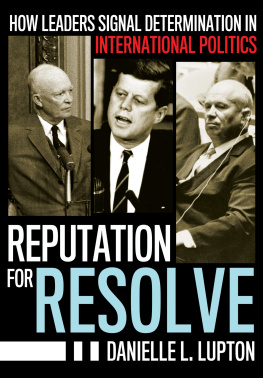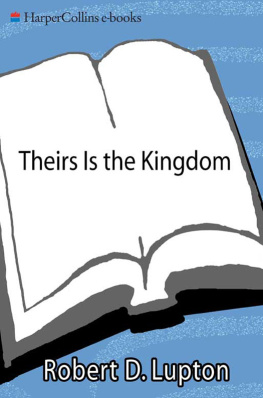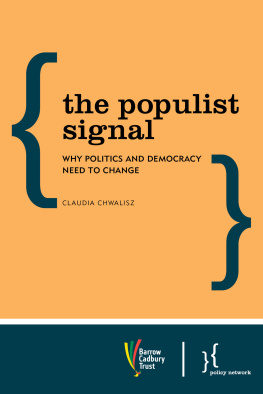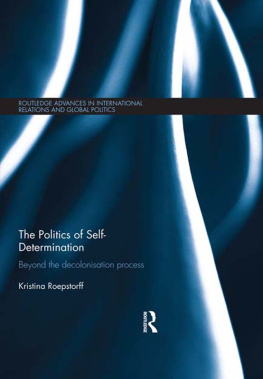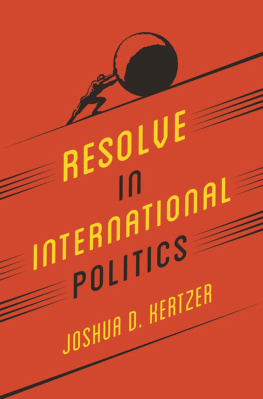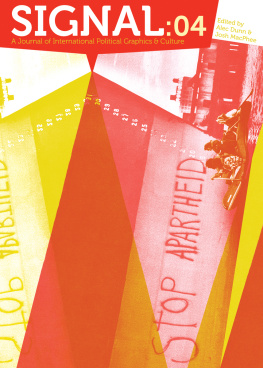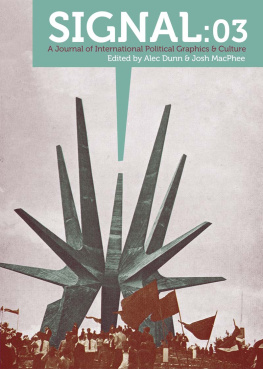Reputation for Resolve
How Leaders Signal Determination in International Politics
DANIELLE L. LUPTON
Cornell University Press
Ithaca and London
To Cosmin, Ann, Chris, and Bear
Contents
Illustrations
Acknowledgments
This book would not be possible without the support and guidance of many people. I owe a large debt of gratitude to Joseph Grieco and Tim Bthe for their extensive and repeated feedback on various drafts of this work, as well as for their continued guidance throughout this process. Thank you also to Alexander Downes, Christopher Gelpi, Bruce Jentleson, and Peter Feaver for their many years of support.
Over the years, many other people provided invaluable feedback on portions of this book. Thank you to Bill Boettcher for his extensive comments on early drafts of the experiments presented in chapters 2 and 3. Amanda Murdie, James Scott, Thomas Preston, Wesley Renfro, and Steven Redd each gave me incredibly helpful feedback and notes on what would eventually become chapter 2. Thank you also to Keren Yarhi-Milo for reading an early draft of the manuscript and providing her comments, particularly on the theoretical contribution of the work. At Colgate, I am fortunate to be surrounded by wonderful colleagues. Thank you to Noah Dauber, Ed Fogarty, Dominika Koter, Navine Murshid, Illan Nam, and other members of the Junior Faculty Research Colloquium for their comments on the introduction and chapter 1. I also owe a great deal of thanks to Valerie Morkeviius for reading and providing extensive notes on a full draft of the manuscript before its submission. Thank you to my senior colleagues at Colgate, including Tim Byrnes, Fred Chernoff, and Nina Moore, for their support and guidance throughout this process. Thank you also to Cynthia Terrier for her assistance in many ways. Many other colleagues outside of my institution helped me with the writing of this book, whether by letting me bounce ideas off them or by providing support. This includes Jonathan Brown, Marina Henke, Jonathan Markowitz, and Eleonora Mattiaci, among others. My apologies to those whom I forgot to mention here. Thank you also to the archival staff at the Eisenhower Presidential Library for their help in locating and retrieving key documents central to the argument in chapter 4. Portions of chapter 2 were published as Signaling Resolve: Leaders, Reputations, and the Importance of Early Interactions, International Interactions 44, no. 1 (2018): 5987, www.tandfonline.com.
I want to thank the series editors and reviewers for their extensive and constructive feedback. This book would not be what it is today without their fantastic comments, which greatly improved the manuscript. Thank you also to Roger Haydon for his detailed comments on various portions of this book and for his assistance throughout the process. This book would also not be possible without the financial support of several institutions. Thank you to the Duke University Graduate School, Duke Universitys Social Science Research Institute, the Duke Program for the Study of Democracy, Institutions, and Political Economy, and the Robert K. Steel Fellowship Endowment at Duke University for funding to conduct the experiments presented in this book. Thank you also to Colgate University and Colgates Faculty Research Council for funding to support additional experimental surveys that served as critical robustness checks and for financial support to defray the costs of archival research. Thank you as well to the Eisenhower Foundation for its generous financial support to conduct research at the Eisenhower Presidential Library.
Finally, I would like to thank my familyto whom I dedicate this book. To my parents, Ann and Chris, thank you for always believing in me and for encouraging me to pursue my intellectual curiosity. Thank you also for all the sacrifices you have made for me. To my husband, Cosmin, thank you for your unwavering and total support. This is for you.
Introduction
Why Leaders and Their Reputations for Resolve Matter
In 1964, U.S. president Lyndon B. Johnson justified the United States continued military involvement in Vietnam in reputational terms. Johnson feared that removing U.S. troops from the conflict would make him appear weak on national security and would injure his personal reputation for resolve, confiding to Senator Richard Russell: If I lose it [Vietnam], I think that theyll say Ive lost. Ive pulled in. Indeed, U.S. decision makers during Vietnam so fervently believed in the reputational consequences of their actions that they continued to pour resources into the war, despite the mounting costs. As the conditions on the ground worsened, they believed it was even more important to signal their determination and to remain committed to their course of action. Thus, concern over reputation for resolve led U.S. policymakers to engage in an increasingly unpopular war and to continue to devote resources to a conflict they would ultimately lose.
The Vietnam War is not the only instance in which U.S. decision makers have acted to establish or preserve their reputations for resolve. In 1973, Richard Nixon viewed Americas airlift during the Yom Kippur War as a direct signal of his personal resolve in support of Israel.
Even more so, U.S. decision makers are not alone in their belief that their reputations for resolve critically affect their ability to conduct foreign policy and achieve favorable outcomes abroad. In 1960, Indian prime minister Jawaharlal Nehru rejected Chinas offer of compromise over the Aksai Chin in an effort to invest in his own reputation for firmness.
Yet, while policymakers believe their reputations for resolve matter, scholars of international politics intensely debate the extent to which reputations for resolve influence the conduct of international conflict and whether those reputations even exist to begin with. As a result, we still do not know how reputations for resolve form and what role past actions play in assessments of resolve; nor do we fully understand the extent to which such reputations meaningfully influence international politics. This book tackles both of these issues. In doing so, this book shows how leaders establish reputations for resolve through their statements and behavior, how these reputations are conditioned by the context in which leaders interact, and how these leader-specific reputations for resolve influence the conduct of international negotiations and crises.
Defining Reputation for Resolve: Why Leaders Care about Their Reputations
Leaders worry about their reputations for resolve because they believe certain reputations, such as a reputation for irresolute action, will make them and their states more vulnerable to international threats; but other reputations, such as a reputation for resolute action, will make them and their states more secure. and they are rooted in the interpretation of an actors past behavior. Reputations, therefore, are perceptional rather than objective, and actors do not have direct control over their reputations.
While reputations are perceptions actors hold about each other, resolve is about an actors determination, firmness, or steadfastness of purpose. Resolve, however, is not synonymous with obstinacy or militancy. Reputations for resolve are not purely based on an actors risk propensity, as demonstrating resolve should help states avoid war and propose settlements that the more resolute party finds acceptable. Yet, while we typically talk about resolve in dichotomous termsan actor is either resolute or irresoluteactors can have varying levels of resolve and different intensities of reputation.

